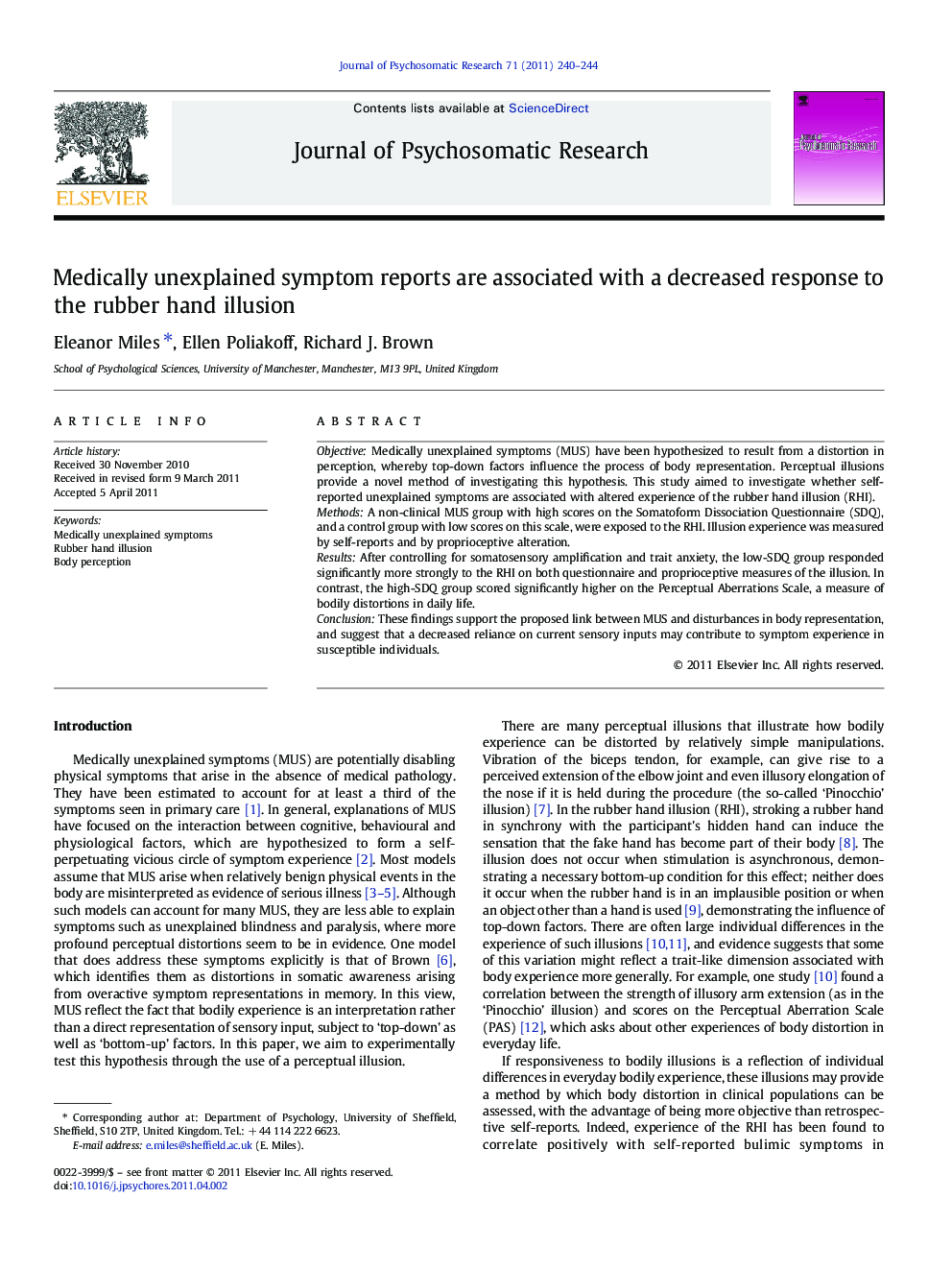| Article ID | Journal | Published Year | Pages | File Type |
|---|---|---|---|---|
| 949789 | Journal of Psychosomatic Research | 2011 | 5 Pages |
ObjectiveMedically unexplained symptoms (MUS) have been hypothesized to result from a distortion in perception, whereby top-down factors influence the process of body representation. Perceptual illusions provide a novel method of investigating this hypothesis. This study aimed to investigate whether self-reported unexplained symptoms are associated with altered experience of the rubber hand illusion (RHI).MethodsA non-clinical MUS group with high scores on the Somatoform Dissociation Questionnaire (SDQ), and a control group with low scores on this scale, were exposed to the RHI. Illusion experience was measured by self-reports and by proprioceptive alteration.ResultsAfter controlling for somatosensory amplification and trait anxiety, the low-SDQ group responded significantly more strongly to the RHI on both questionnaire and proprioceptive measures of the illusion. In contrast, the high-SDQ group scored significantly higher on the Perceptual Aberrations Scale, a measure of bodily distortions in daily life.ConclusionThese findings support the proposed link between MUS and disturbances in body representation, and suggest that a decreased reliance on current sensory inputs may contribute to symptom experience in susceptible individuals.
